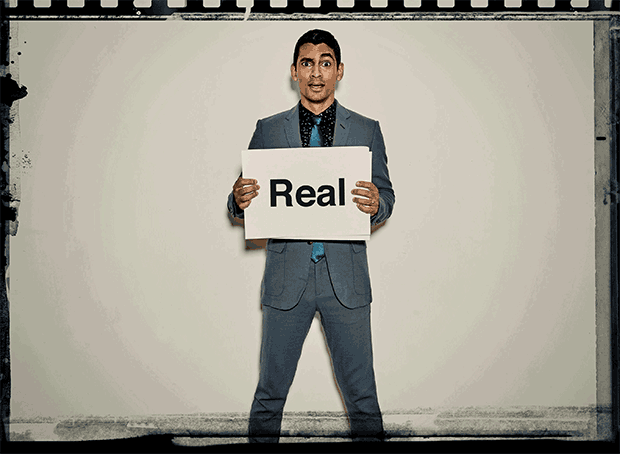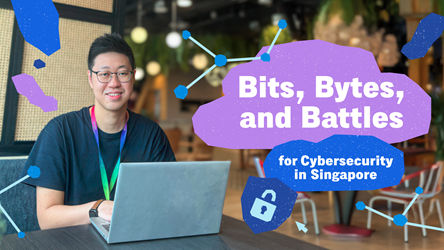Bursting Filter Bubbles

“Taxi uncle say, every year the rich and poor getting further apart lah. Rich getting richer, poor getting poorer every year, right?”
How would you answer? Try the “Money No Enough” quiz on Confirm.sg. If you find yourself red-faced and stunned by how much you don’t know about Singapore, blame it on Gaurav Keerthi, the man behind the site.
An air force pilot by day, he is also a debate educator who is alarmed at how online conversations can spread negativity and untruths, especially because of social media’s echo chamber effect. So he thought of ways to cut through the noise and serve the facts. He designed and developed Dialectic.sg, a patent-pending platform for respectful, productive debate on contentious matters and policies. But its users are a small, self-selecting group, Gaurav admits. And so Confirm.sg followed, with quizzes to appeal to everyone – and burst your filter bubble with facts, fun and Singlish along the way.
The spark for Confirm.sg was the elections in the US, UK and the Philippines, where many people were misled by fake news online, and voted based on misperceptions and lies.
When I see people arguing online without respect, I feel disappointed and worried. The tipping point was when I saw close friends “unfriend” each other because of things they quarrelled about online.
I realised that the space for objective discussion was getting smaller because people are unsure about the facts, and cannot or do not want to research the issue.
They end up in filter bubbles of their own because of the way social media works. They are often willing to hear different perspectives, but just don’t get exposed to them.
When you post something, your friends with the same views “like” it, you get reinforcement, and you feel validated. So even if you believe something that was wrong, you never get corrected.
There is no “dislike” button, and friends rarely correct you on social media.
Right now, the way the government attempts to address fake news is to just present facts. But that doesn’t gain traction on social media because it is quite dry.
In 2016, a quiz was going around: Which Harry Potter character are you? It was a super pointless quiz! But it went really viral.
Social media is, to some extent, a very self-centred environment. The Harry Potter quiz tells people about you. It’s fun, it’s easy to answer, the interface is uncluttered.
So I thought, OK, let’s make a similar quiz, which tells people something funny about yourself, like “I’m a blur sotong about NDP”, or “I’m a super nerd” about it. Let’s get them challenging each other and make learning go viral.
My first quiz (Taxi Uncle say: Money No Enough!) had 2,000 people completing it in 48 hours. They broke my free server. I was flabbergasted.
After I give them the answers, I also tell them how other participants answered, especially those who are demographically similar. If a lot of people like you believe something that’s wrong, then you probably are in the same filter bubble.

That causes a shock and awe that makes the fact stick. On the flipside, for those in the minority who get it wrong, that also shocks them into realising their misperception.
I want to break that reinforcement that Facebook is always telling you, that if people like your post, you must be factually correct. Slowly, it chips away at their misperceptions and the overconfidence they have based on that reinforcement.
Am I going to solve the problem overnight? No, lah.
On Confirm.sg, I use Singlish, I use personas like taxi uncles, kopi kaki, and ah bengs, and I try to make it fun.
Would a government agency be willing to participate in such a thing? Maybe… but they have to let go of a lot of control. The quiz is meant to be irreverent.
When one agency suggested doing a quiz on government schemes, I said: Are you prepared for fairly brutal feedback? Because I will ask questions that are inconvenient and I will poke fun at you.
They asked, “Can you frame it all positively?” I said no. I will also ask uncomfortable questions.
We can’t be immune to criticism or avoid facing up to hard truths and difficult questions. People believe in the credibility of the site only when you are honest about things.
As an individual, I’m not critiquing government policy. I’m just allowing these questions to be asked and clarifying what is factual and what is false.

Confirm.sg offers a “Blur Sotong’s Guide to the Internet”: (1) Don't be bodoh: not sure, better find out. (2) Don't kena bluff: don't anyhow believe everything you read online. (3) Don't talk cock: not confirm true, don't spread rumour lah.
My worst fear is that people are persuaded by fake news to have a certain entrenched misperception of policy. Once that happens you’ve lost the ability to influence. You’re on the defence. And I’m very worried about that.
I program Confirm.sg myself. I enjoy learning new programming languages, so I tried something different for this site compared to Dialectic.sg. A few volunteers help me with topic ideas and research.
It’s built for mobile, with the commuter in mind. I am trying to target people who, between Novena and City Hall, want to try out a 10-question quiz, read something interesting, learn a bit, laugh a bit, and then move on.
Efforts like mine will inspire other efforts that will hopefully be better. If there are more people like me who try, there will be so much momentum that society will change.
Confirm.sg is spurring conversations – and I want it to be a precursor to real-life conversations about a fact that surprised them, or conversations on other forums about how many people got a question wrong and why. That’s the longer-term objective, to be a catalyst for real change.
Many public officers lead interesting, productive, meaningful polymath lives, but think they have to keep their public and personal lives separate. Look, just own it. Don’t be ashamed! The Public Service is richer for having you.
- POSTED ON
Oct 2, 2017
- TEXT BY
Siti Maziah Masramli
- PHOTOS BY
Teck Lim, Lumina
- ART DIRECTION BY
Yip Siew Fei
-
Trends
Trending February 2018
-
Work Better
How To Tell If A Viral Story Is A Hoax









